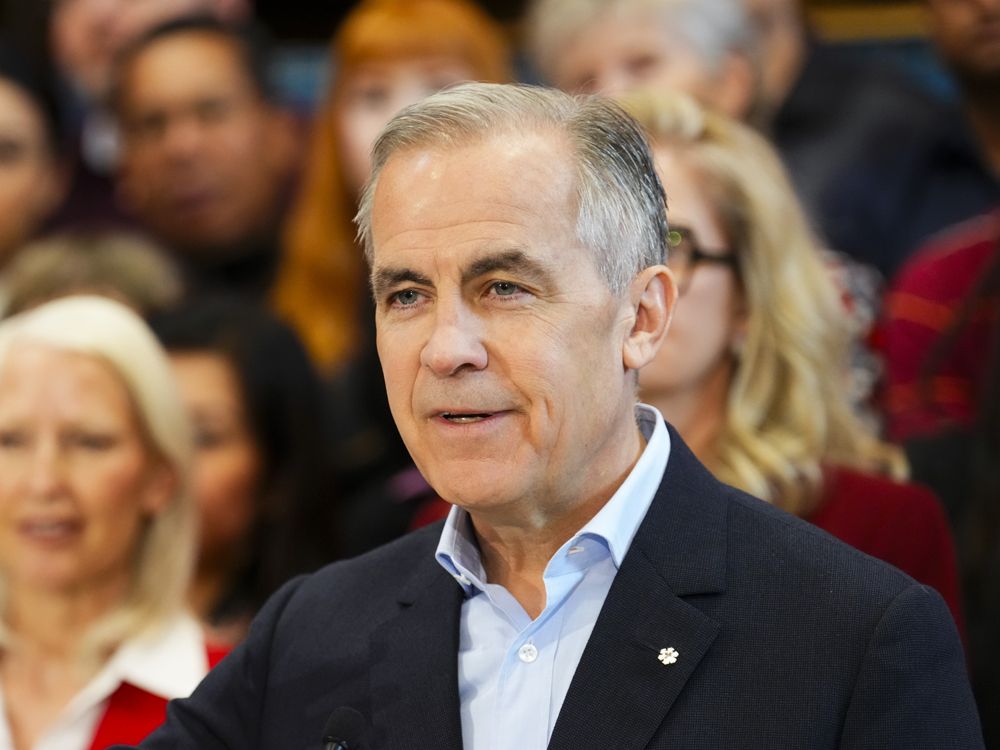There’s been no clear path for Canada on how
best to manage relations
with the United States, but there are emerging signals of a possible path to avoid the worst of what is still to come, particularly a review or full renegotiation next year, if not sooner, of the
Canada-United States-Mexico Agreement
(CUSMA).
The critical question for Canada — and others — is how does a country offer potentially irreversible concessions on deeply important issues in exchange for promises that are, at best, uncertain to be kept and may not last as long as it takes the ink on the agreement to dry? All in exchange for a deal worse than no deal at all, accompanied by public humiliation and concomitant domestic political blowback.
There is no simple solution.
As bad as this is, walking away or diversifying to other markets is an option Canada has tried and failed at.
Fifty years ago, the
last time across-the-board tariffs from the U.S.
blindsided the country, Canada embarked on a
continuous, well-financed and well-resourced effort
to diversify to other markets. That we are, once again, in the same dilemma but with an even greater trade dependence speaks volumes about the lack of success of this strategy. Other strategies, such as increasing trade within Canada, will also, at best, provide marginal help.
Signing a trade deal with the U.S. turns out to have been akin to checking into the Hotel California: You can check out anytime, but never leave.
Canada has to find a better path to survive a U.S. it cannot leave. This requires a return of confidence, which in turn requires a version of Ronald Reagan’s doctrine for dealing with an untrustworthy partner: “Trust (or certainty), but verify.”
This is not impossible. It requires two changes in the U.S. and there are early signs that both may be in process.
First, the American public must fully absorb the object lesson on the cost of bad economic and trade policy. This began after
Donald Trump’s election
, when Google searches for “what is a tariff” surged 1,650 per cent.
Since then, the textbook definition has played out in real time, reinforced by media saturation and lived experience. At some point, the daily beatdown of the MAGA
trade worldview
on television and in retail stores becomes impossible to spin as winning.
That point hasn’t yet come. The pain hasn’t been sharp enough, widespread enough or personal enough to shift hardened beliefs. MAGA partisans are too invested in the movement — and the man — for an easy or graceful reversal. This is a “no retreat, no surrender” movement. It can hold two or three contradictory ideas at once, but it can’t admit it was wrong.
It will also take more than a stock market crash or sagging 401(k)s to change minds. Only half of U.S. millennials and less than 10 per cent of gen-Zers have retirement savings. It’s hard to feel the sting of the loss of money you never had or hoped to have. Watching the wealthy take a hit might even be a schadenfreude selling point.
Second, the pain of learning the object lesson of
bad economic policy
must go beyond electoral change; it must be institutionalized. Congress must rein in the root of the problem, the almost blank-cheque authority it has ceded to the executive, which includes the power to impose tariffs during a “national emergency.”
In 1976/77, the U.S. Congress, realizing that the country had been in a state of emergency for more than 40 years, passed two acts to reform a president’s use of emergency power. The ineffectiveness of those reforms is on full display today and in the fact that the number and length of national emergencies have increased since
the acts to reform
presidential emergency powers were passed.
Proposals
such as those from the Cato Institute in Washington, D.C., which require Congress to confirm a president’s national emergency by a two-thirds majority within a short period of it being declared, would have prevented the current mess.
Instead of requiring a two-thirds vote to rescind an emergency declaration, having an emergency automatically end if it does not receive a two-thirds confirmation from both houses of Congress would mean that last week’s vote in the Senate to end Trump’s tariffs would have succeeded. There weren’t the votes to rescind the tariffs, but neither were there the votes to confirm it.
A change in administration will not return the certainty needed to engage the U.S. in trade talks, nor will ending the current emergency. Canada has already tried appeasing the Americans, and here we are.
Until the law that got us all into this mess is changed, the only deal on the table from the Americans will be the certainty of humiliation in exchange for an illusion.
Carlo Dade is a senior fellow with the Canada West Foundation
Bookmark our website and support our journalism: Don’t miss the business news you need to know — add financialpost.com to your bookmarks and sign up for our newsletters here.
A Canadian path forward with the United States on trade
2025-04-14 16:43:57





